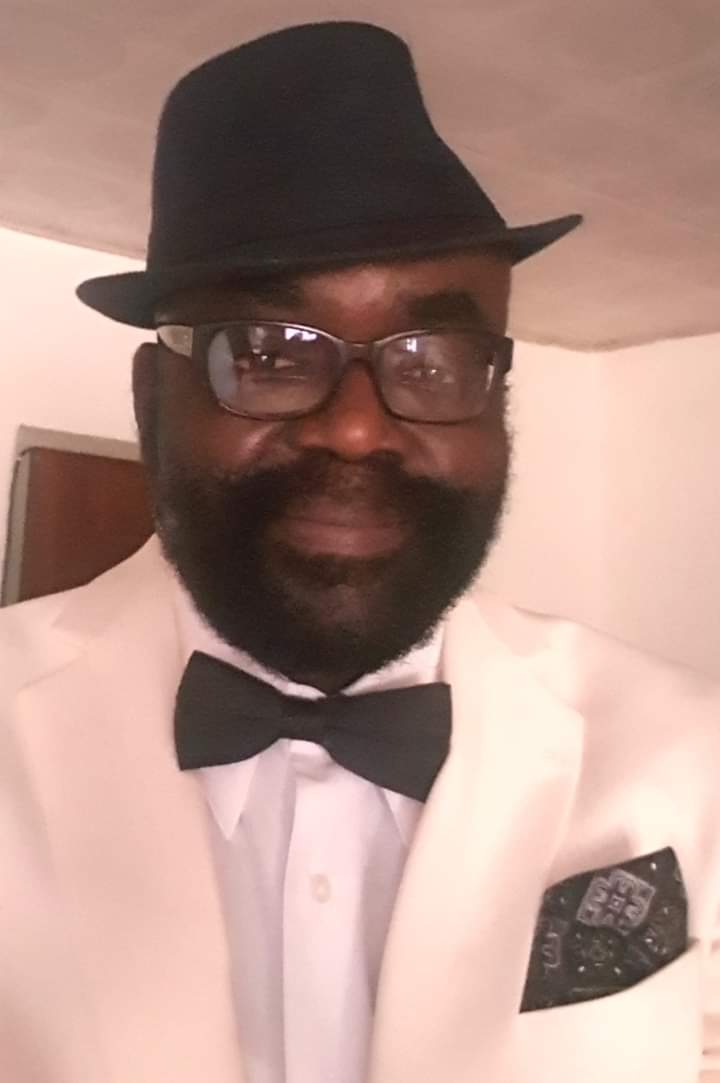Away from the grandiose promises of politicians in these testy times of electoral campaigns in the midst of insecurity, let’s just pause for a moment and consider how parts of our country came to look like Libya where warlords determine life expectancy. I am not aware that any of the leading presidential candidates has shown us the bolts and nuts of how he hopes to fix the problem beyond the bland, “I will tackle insecurity headlong”.
How, dear candidate, are you going to do things differently? How are you going to stem this tide of decimation of young promising lives and the reduction of our populace to merchandise by hostage takers?
When the great French poet, Jean de La Fontaine, posited that, “A person often meets his destiny on the road he took to avoid it”, he couldn’t have had a certain Nigerian named Temitope Fatunmbi in mind. But fate often deals an uncanny hand; the Tarot of life can be dealt whichever way Providence chooses. You cannot run away from your shadow. The unseen hands of fate will pluck you at will.
Terrorists have encircled Nigeria. There is no state of the federation that is free of their menace. When you escape their bullets in one part of the country, other gangs are waiting for you in other parts. Indeed, there have been cases of people who were kidnapped twice within the same month. Where else are Nigerians supposed to run to when they are not safe in any part of their country?
The untimely death of any Nigerian should worry the rest of us. But we seem to shrug our shoulders and move on because we are becoming used to this state of anomie where life has been reduced to the Hobbesian State of nature.
Thomas Hobbes, in his work, Leviathan, reasoned that life without a central authority would be nasty, brutish, and short. But how come now that we have central authority life is no less nasty, brutish and short?
For Citizen Temitope Fatunmbi, thunder struck twice on the same target. His family lived in the Bwari area of Abuja until last year when he had to relocate his wife and children to join him in Lagos on account of insecurity. Before then he used to shuttle to Abuja once or twice a month to see his family.
In March 2021, a gang of armed kidnappers struck. There were about thirty of them in all but only ten entered the house. They forcefully gained entry and looted the house of electronic items, clothing, money, jewellery, foodstuff and indeed anything they could carry. They then proceeded to vandalise the rest of the house, destroying whatever they could not carry.
Then they decided to abduct Temitope’s father who was visiting with his son’s family. They went from house to house, spreading misery all over the area without let or hindrance. As has become normal with such cases, there was no law enforcement presence to challenge the criminals. They abducted more victims from other houses before they made away with their loot and human cargo.
After a seven hour trek in the bush, they arrived at the kidnappers’ den. The terrorists reached out to the families of their victims demanding various sums of money. They administered severe beatings on the victims every hour and made sure to let their families know. Temitope’s 70-year-old father had been ill before the abduction. He was not allowed to take his medication with him; neither was he allowed to wear his clothes. His condition was getting worse in captivity. The family desperately sold all they had and managed to raise N4.6 million which they handed over to the terrorists on the sixth day together with cartons of beer, malt drink, milk and gsm recharge cards.
It was that terrible incident that made Temitope decide to relocate his family to Lagos so that they could all be together, away from the terrorists in Abuja.
But then, fate waylaid the family again. On a trip from Lagos to Ibadan, about 20 kilometres from their destination, two rifle-wielding ruffians emerged from the bush shooting indiscriminately. Those who have witnessed such nightmarish incidents say kidnappers don’t bother with the niceties of flagging a vehicle down; they shoot it to a stop!
Temitope was driving with his wife seated beside him. Their two children were in the back seat. Bullets were flying all around. Temitope tried as much as he could to put distance between the car and the killers, but two of the bullets found their mark and the victim did not even know until one of the children drew attention to a crimson patch at their dad’s back. He had been shot.
For a moment, he didn’t feel anything and continued trying to get away from the area as fast as possible. His wife even suggested that she would take over the steering as soon as he was able to get them to a safe place. But he was bleeding profusely. After a while, he began to lose consciousness. He lost control of the vehicle and swerved into the bush. The vehicle somersaulted.
I leave the rest of this heart-rendering story to Temitope’s widow, the woman whose children have been rendered fatherless by our collective inability to stamp out terrorism from our land.
“𝐼 𝑡𝑟𝑖𝑒𝑑 𝑡𝑜 𝑢𝑛𝑙𝑜𝑐𝑘 𝑡ℎ𝑒 𝑣𝑒ℎ𝑖𝑐𝑙𝑒 𝑡𝑜 𝑜𝑝𝑒𝑛 𝑚𝑦 𝑑𝑜𝑜𝑟 𝑠𝑖𝑑𝑒 𝑏𝑢𝑡 𝐼 𝑐𝑜𝑢𝑙𝑑𝑛’𝑡. 𝑇ℎ𝑒 𝑑𝑜𝑜𝑟 𝑤𝑎𝑠 𝑠𝑡𝑢𝑐𝑘. 𝐼 𝑡𝑟𝑖𝑒𝑑 𝑡𝑜 𝑜𝑝𝑒𝑛 ℎ𝑖𝑠 𝑑𝑜𝑜𝑟 𝑏𝑢𝑡 𝑖𝑡 𝑤𝑎𝑠 𝑠𝑡𝑢𝑐𝑘 𝑡𝑜𝑜. 𝐼 𝑚𝑎𝑛𝑎𝑔𝑒𝑑 𝑡𝑜 𝑢𝑛𝑙𝑜𝑐𝑘 ℎ𝑖𝑠 𝑠𝑒𝑎𝑡𝑏𝑒𝑙𝑡 𝑎𝑛𝑑 𝑏𝑒𝑐𝑘𝑜𝑛𝑒𝑑 𝑜𝑛 𝑚𝑦 𝑑𝑎𝑢𝑔ℎ𝑡𝑒𝑟 𝑡𝑜 𝑜𝑝𝑒𝑛 𝑡ℎ𝑒 𝑏𝑜𝑜𝑡 𝑜𝑓 𝑡ℎ𝑒 𝑣𝑒ℎ𝑖𝑐𝑙𝑒 𝑏𝑢𝑡 𝑠ℎ𝑒 𝑐𝑜𝑢𝑙𝑑𝑛’𝑡. 𝑀𝑦 𝑠𝑜𝑛 𝑡𝑟𝑖𝑒𝑑 ℎ𝑖𝑠 𝑑𝑜𝑜𝑟 𝑎𝑛𝑑 𝑖𝑡 𝑜𝑝𝑒𝑛𝑒𝑑. 𝐼𝑚𝑚𝑒𝑑𝑖𝑎𝑡𝑒𝑙𝑦 ℎ𝑒 𝑑𝑖𝑑 𝑎𝑛𝑑 𝑤𝑒 𝑤𝑒𝑟𝑒 𝑡𝑟𝑦𝑖𝑛𝑔 𝑡𝑜 𝑐𝑜𝑚𝑒 𝑜𝑢𝑡 𝑜𝑓 𝑡ℎ𝑒 𝑣𝑒ℎ𝑖𝑐𝑙𝑒, 𝑡ℎ𝑒 𝑔𝑢𝑛𝑚𝑒𝑛 𝑠𝑡𝑎𝑟𝑡𝑒𝑑 𝑠ℎ𝑜𝑜𝑡𝑖𝑛𝑔 𝑎𝑔𝑎𝑖𝑛…
“𝐼 𝑝𝑖𝑐𝑘𝑒𝑑 𝑚𝑦 𝑝ℎ𝑜𝑛𝑒 𝑎𝑛𝑑 𝑠𝑡𝑎𝑟𝑡𝑒𝑑 𝑚𝑎𝑘𝑖𝑛𝑔 𝑐𝑎𝑙𝑙𝑠. 𝑃𝑒𝑜𝑝𝑙𝑒 𝑐𝑜𝑚𝑖𝑛𝑔 𝑓𝑟𝑜𝑚 𝐼𝑏𝑎𝑑𝑎𝑛 𝑤ℎ𝑜 𝑐𝑜𝑢𝑙𝑑 ℎ𝑎𝑣𝑒 ℎ𝑒𝑙𝑝𝑒𝑑 𝑑𝑖𝑑𝑛’𝑡 𝑘𝑛𝑜𝑤 𝑤ℎ𝑒𝑟𝑒 𝐼 𝑤𝑎𝑠. 𝑂𝑡ℎ𝑒𝑟𝑠 𝑤𝑒𝑟𝑒 𝑐𝑎𝑙𝑙𝑖𝑛𝑔 𝑡ℎ𝑜𝑠𝑒 𝑡ℎ𝑒𝑦 𝑘𝑛𝑜𝑤 𝑎𝑛𝑑 𝑤ℎ𝑜 𝑤𝑒𝑟𝑒 𝑜𝑛 𝑡ℎ𝑒 𝑟𝑜𝑎𝑑 𝑡𝑜 𝑎𝑠𝑠𝑖𝑠𝑡 𝑢𝑠, 𝑏𝑢𝑡 𝑡ℎ𝑒𝑦 𝑐𝑜𝑢𝑙𝑑 𝑛𝑜𝑡 𝑙𝑜𝑐𝑎𝑡𝑒 𝑢𝑠 𝑎𝑙𝑠𝑜…
“𝑂𝑛 𝑔𝑒𝑡𝑡𝑖𝑛𝑔 𝑡𝑜 𝑡ℎ𝑒 𝑟𝑜𝑎𝑑, 𝑡ℎ𝑒 𝑑𝑟𝑖𝑣𝑒𝑟𝑠 𝑜𝑓 𝑣𝑒ℎ𝑖𝑐𝑙𝑒𝑠 𝐼 𝑤𝑎𝑠 𝑠𝑡𝑜𝑝𝑝𝑖𝑛𝑔 𝑤𝑒𝑟𝑒 𝑎𝑓𝑟𝑎𝑖𝑑, 𝑡ℎ𝑖𝑛𝑘𝑖𝑛𝑔 𝑡ℎ𝑎𝑡 𝐼 𝑤𝑎𝑠 𝑎 𝑏𝑎𝑖𝑡 𝑝𝑙𝑎𝑛𝑡𝑒𝑑 𝑡ℎ𝑒𝑟𝑒. 𝐵𝑙𝑜𝑜𝑑 𝑤𝑎𝑠 𝑎𝑙𝑙 𝑜𝑣𝑒𝑟 𝑚𝑒 𝑏𝑢𝑡 𝑛𝑜𝑏𝑜𝑑𝑦 𝑤𝑎𝑠 𝑤𝑖𝑙𝑙𝑖𝑛𝑔 𝑡𝑜 ℎ𝑒𝑙𝑝. 𝐴𝑡 𝑡ℎ𝑒 𝑒𝑛𝑑 𝑜𝑓 𝑡ℎ𝑒 𝑑𝑎𝑦, 𝑡ℎ𝑟𝑒𝑒 𝑆𝑖𝑒𝑛𝑛𝑎 𝑣𝑒ℎ𝑖𝑐𝑙𝑒𝑠 𝑠𝑡𝑜𝑝𝑝𝑒𝑑 𝑏𝑢𝑡 𝑡ℎ𝑒𝑦 𝑑𝑖𝑑𝑛’𝑡 𝑤𝑎𝑛𝑡 𝑡𝑜 𝑒𝑛𝑡𝑒𝑟 𝑡ℎ𝑒 𝑏𝑢𝑠ℎ. 𝑇ℎ𝑒𝑦 𝑏𝑒𝑙𝑖𝑒𝑣𝑒𝑑 𝐼 𝑤𝑎𝑠 𝑝𝑙𝑎𝑛𝑡𝑒𝑑 𝑡ℎ𝑒𝑟𝑒. 𝑇ℎ𝑒𝑦 𝑎𝑠𝑘𝑒𝑑 𝑓𝑜𝑟 𝑡ℎ𝑒 𝑛𝑎𝑚𝑒 𝑜𝑓 𝑡ℎ𝑒 𝑖𝑛𝑗𝑢𝑟𝑒𝑑 𝑝𝑒𝑟𝑠𝑜𝑛 𝑎𝑛𝑑 𝐼 𝑡𝑜𝑙𝑑 𝑡ℎ𝑒𝑚: ‘ℎ𝑖𝑠 𝑛𝑎𝑚𝑒 𝑖𝑠 𝑇𝑒𝑚𝑖𝑡𝑜𝑝𝑒 𝐹𝑎𝑡𝑢𝑛𝑚𝑏𝑖. 𝐻𝑒’𝑠 𝑚𝑦 ℎ𝑢𝑠𝑏𝑎𝑛𝑑!’ 𝑇ℎ𝑒𝑦 𝑤𝑒𝑟𝑒 𝑐𝑎𝑙𝑙𝑖𝑛𝑔 ℎ𝑖𝑚 𝑡𝑜 𝑐𝑜𝑚𝑒 𝑜𝑢𝑡 𝑏𝑢𝑡 𝐼 𝑠𝑎𝑖𝑑 ℎ𝑒 𝑐𝑜𝑢𝑙𝑑𝑛’𝑡 𝑐𝑜𝑚𝑒 𝑎𝑠 ℎ𝑒 𝑐𝑜𝑢𝑙𝑑 𝑛𝑜 𝑙𝑜𝑛𝑔𝑒𝑟 𝑡𝑎𝑙𝑘…
“𝐿𝑎𝑡𝑒𝑟, 𝑡ℎ𝑒 𝑝𝑒𝑜𝑝𝑙𝑒 ℎ𝑒𝑎𝑟𝑑 𝑚𝑦 𝑐ℎ𝑖𝑙𝑑𝑟𝑒𝑛’𝑠 𝑣𝑜𝑖𝑐𝑒𝑠 𝑓𝑟𝑜𝑚 𝑡ℎ𝑒 𝑏𝑢𝑠ℎ. 𝑇ℎ𝑒𝑦 𝑤𝑒𝑟𝑒 𝑠ℎ𝑜𝑢𝑡𝑖𝑛𝑔: ‘𝑝𝑙𝑒𝑎𝑠𝑒 ℎ𝑒𝑙𝑝 𝑜𝑢𝑟 𝑑𝑎𝑑𝑑𝑦!’ 𝑇ℎ𝑎𝑡 𝑤𝑎𝑠 𝑤ℎ𝑎𝑡 𝑏𝑟𝑜𝑢𝑔ℎ𝑡 𝑡ℎ𝑒 𝑝𝑒𝑜𝑝𝑙𝑒 𝑡𝑜 𝑡ℎ𝑒 𝑝𝑙𝑎𝑐𝑒. 𝑇ℎ𝑒𝑦 𝑑𝑖𝑑𝑛’𝑡 ℎ𝑒𝑙𝑝 𝑡ℎ𝑒 𝑚𝑎𝑛 𝑏𝑢𝑡 𝑡𝑜𝑜𝑘 𝑡ℎ𝑒 𝑐ℎ𝑖𝑙𝑑𝑟𝑒𝑛 𝑡𝑜 𝑡ℎ𝑒 𝑟𝑜𝑎𝑑, 𝑠𝑜 𝐼 𝑟𝑎𝑛 𝑎𝑓𝑡𝑒𝑟 𝑡ℎ𝑒𝑚. 𝐼 𝑠𝑎𝑤 𝑎 𝑅𝑜𝑎𝑑 𝑆𝑎𝑓𝑒𝑡𝑦 (𝐹𝑅𝑆𝐶) 𝑏𝑢𝑠 𝑠𝑝𝑒𝑒𝑑𝑖𝑛𝑔 𝑝𝑎𝑠𝑡 𝑎𝑛𝑑 𝑟𝑎𝑛 𝑎𝑓𝑡𝑒𝑟 𝑖𝑡, 𝑠ℎ𝑜𝑢𝑡𝑖𝑛𝑔. 𝑇ℎ𝑒 𝑏𝑢𝑠 𝑠𝑡𝑜𝑝𝑝𝑒𝑑 𝑏𝑢𝑡 𝑡ℎ𝑒𝑟𝑒 𝑤𝑎𝑠 𝑛𝑜 𝑓𝑖𝑟𝑠𝑡 𝑎𝑖𝑑 𝑖𝑛 𝑖𝑡. 𝐼𝑡 𝑜𝑛𝑙𝑦 ℎ𝑎𝑑 𝑎 𝑠𝑡𝑟𝑒𝑡𝑐ℎ𝑒𝑟, 𝑠𝑜 𝑡ℎ𝑒𝑟𝑒 𝑤𝑎𝑠 𝑛𝑜𝑡ℎ𝑖𝑛𝑔 𝑡𝑜 𝑠𝑡𝑜𝑝 𝑡ℎ𝑒 𝑏𝑙𝑒𝑒𝑑𝑖𝑛𝑔. 𝑊𝑒 𝑤𝑒𝑟𝑒 𝑐𝑙𝑜𝑠𝑒 𝑡𝑜 𝐼𝑏𝑎𝑑𝑎𝑛 𝑏𝑢𝑡 𝑡ℎ𝑒𝑦 𝑡𝑜𝑜𝑘 𝑢𝑠 𝑡𝑜 𝑎 ℎ𝑜𝑠𝑝𝑖𝑡𝑎𝑙 𝑖𝑛 𝑂𝑔𝑒𝑟𝑒 (𝑂𝑔𝑢𝑛 𝑆𝑡𝑎𝑡𝑒). 𝑂𝑛 𝑔𝑒𝑡𝑡𝑖𝑛𝑔 𝑡ℎ𝑒𝑟𝑒, 𝑡ℎ𝑒 𝑑𝑜𝑐𝑡𝑜𝑟 𝑟𝑒𝑓𝑒𝑟𝑟𝑒𝑑 𝑢𝑠 𝑡𝑜 𝑎𝑛𝑜𝑡ℎ𝑒𝑟 ℎ𝑜𝑠𝑝𝑖𝑡𝑎𝑙. 𝑇ℎ𝑒 𝑓𝑜𝑙𝑙𝑜𝑤𝑖𝑛𝑔 𝑚𝑜𝑟𝑛𝑖𝑛𝑔, 𝐼 ℎ𝑒𝑎𝑟𝑑 𝑎𝑏𝑜𝑢𝑡 ℎ𝑖𝑠 𝑑𝑒𝑎𝑡ℎ.”
That is how cheap human life has become in our country. We must not shirk our responsibility to the victims. They have paid the price already. Who is next? It could have been anyone on that expressway on that fateful day. The killers are all over Nigeria’s forests. The security forces know where their camps are. They make phone calls to negotiate ransom and give specific instructions about where and how their loot is to be delivered. And they do all these under the nose of the government.
The fate that befell Fatunmbi is shared by thousands of Nigerians in Zamfara, Niger, Kaduna, Enugu and many other states. There is a long line of widows and distraught families nationwide.
Let it not be said that it is only when the high and mighty are fallen by the bullets of terrorists that the society rolls out elegies. Let the widow-makers populating our forests not think that we have all accepted our fate as fair game for professional killers and kidnappers. I mourn Temitope Fatunmbi as I would mourn a king. He was a king to have relocated his family back to Lagos, away from terrorists in Abuja. He was a king to have tried to get away from another platoon of the same vermin on Lagos-Ibadan expressway.
Now the king is dead. Long live the king.
As death stalks the land, many disconsolate people are asking: If God, why evil?





